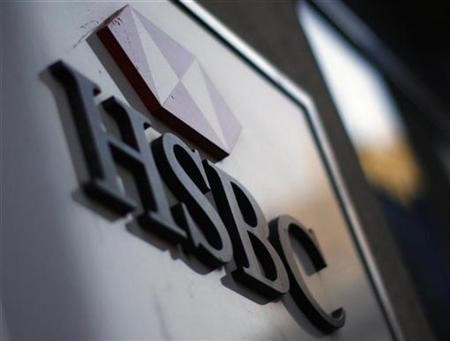HSBC Profits Soar Partly on Lower Mis-Selling Derivatives and PPI Compensation

HSBC's profit-before-tax soared in the first half of this year, partly due to significantly less compensation paid out to customers, who were mis-sold payment protection insurance and complex derivatives.
According the group's interim financial results, HSBC reported profit-before-tax at $14.1bn (£9.2bn, €10.6bn) in the first half of 2013, which is a 10% increase year-on-year.
Operating expenses decreased by 14%, driven by lower charges relating to UK customer redress programmes, added the bank.
HSBC revealed that total costs for compensation and administration related to the mis-selling of PPI came to $412m for the first half of the year, which includes $367m for the policies in previous years.
This number is significantly less than the $1.3bn charge for the first half of 2012, which included $1bn and $230m, for the possible mis-selling of PPI policies and interest rate swap agreements (IRSA), respectively.
"In the UK, the FCA has continued to increase its focus on 'conduct risk' including attention to sales processes and incentives, product and investment suitability and conduct of business concerns more generally," said the group in its financial statement.
"These measures are concerned principally, but not exclusively, with the conduct of business with retail customers and in conjunction with this focus, the UK regulators are making increasing use of existing and new powers of intervention and enforcement, including powers to consider past business undertaken and implement customer compensation and redress schemes or other, potentially significant, remedial work. "
Mis-Selling Scandals
PPI was originally designed to provide loan repayment cover, should the customer fall ill, lose their job or have an accident. However, millions of customers complained after saying that they never wanted or needed the policy in the first place.
After a week of new bank results data, UK banks have now shelled out well over £10bn over the past two years to compensate customers mis-sold PPI.
Meanwhile, IRSAs are contracts between a bank and its customer where typically one side pays a floating, or variable, rate of interest and receives a fixed rate of interest payments in exchange. They are used to hedge against extreme movements in market interest rates over a given period.
Companies that have seen the value of these products move against them as rates fell during the recession now owe banks crippling sums of money in interest payments each year.
But, if the businesses want to cancel the contracts, they are faced with higher costs.
Unlike PPI, it is unclear how much money has been paid out in total to customers mis-sold IRSAs, as some businesses have been delivered 'offers' for redress but have still not received the cash. It is also unclear, apart from media investigations, as to how much has been paid through the courts, rather than the FCA redress scheme.
However, apart from Barclays, a number of banks have revealed over the last week that they are either not adding more cash to the compensation pot or that payouts are very little in volume and amount.
Banks Slowing Down Redress?
The Royal Bank of Scotland has revealed that it has only utilised 8% of the total amount it has set aside to compensate victims for being mis-sold complex derivatives products despite reporting billions of pounds worth of profit last week.
Meanwhile, RBS' fellow state-owned bank Lloyds Banking Group said it has already used up nearly a fifth of the total amount it has set aside to compensate British businesses for mis-selling them IRSAs but will not add any more cash to the redress fund.
Elsewhere, Barclays revealed that it was hit by a £1.35bn payment protection insurance (PPI) charge and has added £650m to its compensation pot for the mis-selling of complex interest rate hedging products.
Barclays' half-year adjusted profit dropped 17%, reaching £3.59bn excluding the PPI charge, which is below analysts' forecasts of £3.7bn.
© Copyright IBTimes 2025. All rights reserved.






















